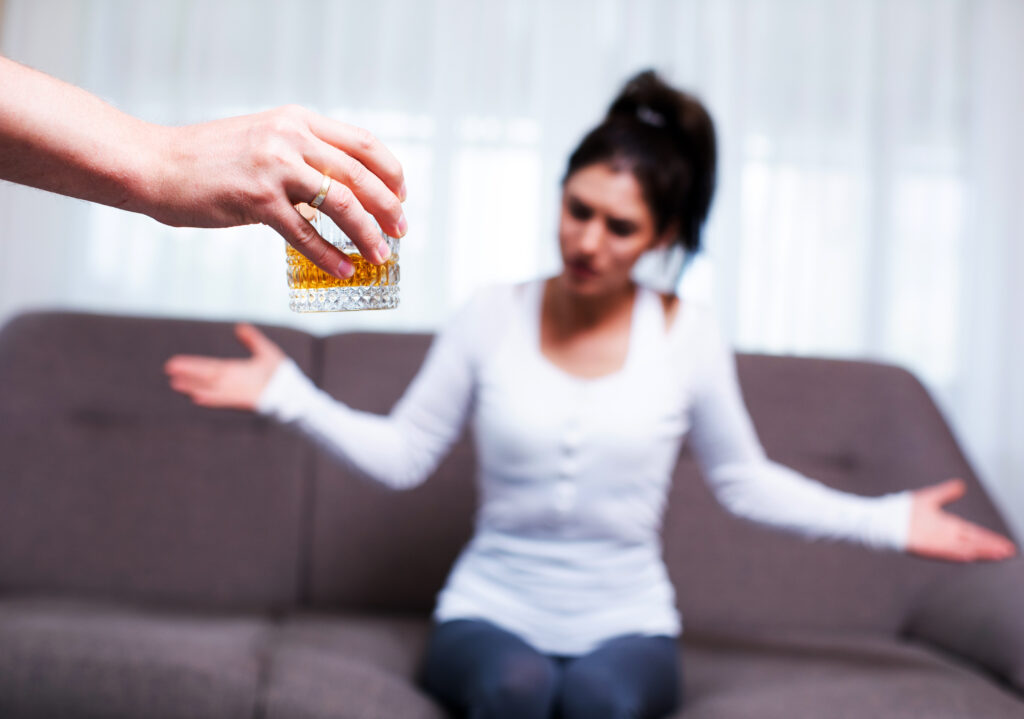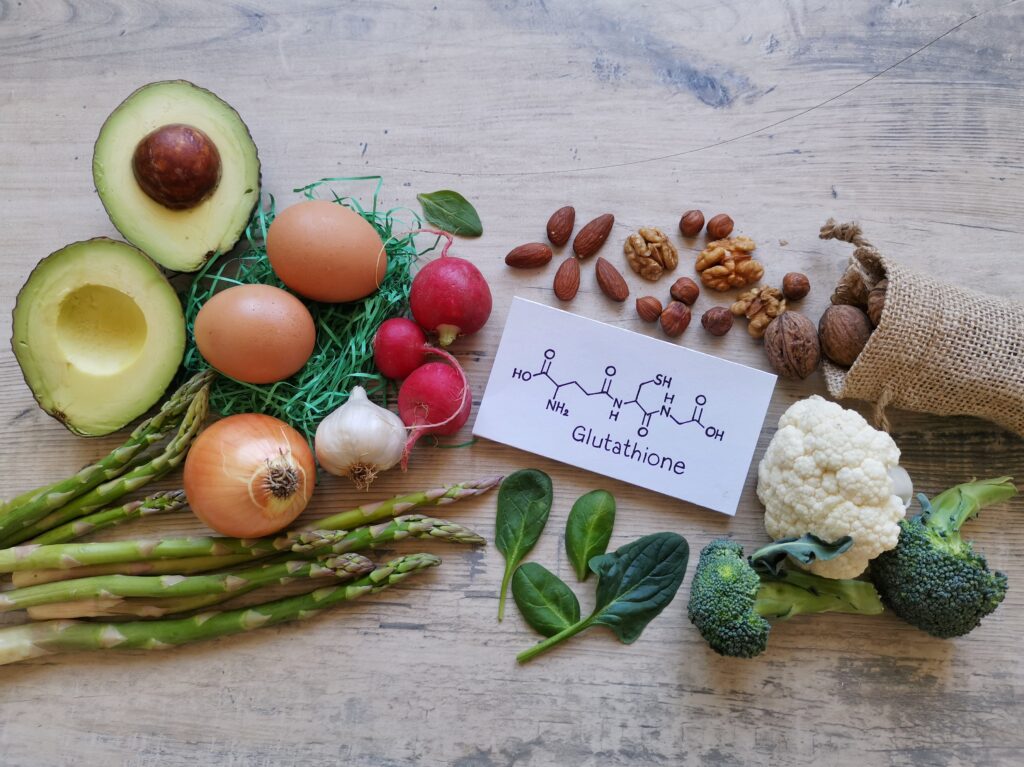Drug addiction is a serious matter, and we understand how difficult it can be to quit. However, the first step towards recovery is drug detoxification. This process involves breaking down and eliminating toxic substances like drugs and alcohol from your body. Our team of experts is here to offer guidance on how to detox from substances and provide you with top-notch drug detox services in a safe and comfortable clinical environment. With our help, you can take control of your addiction and start living a healthier, happier life.
What Is A Drug Detox?
Drug detox is a process by which the body becomes drug-free. There are various methods to do this, but the safety of this process depends on the specific substance. Stopping alone can be overwhelming for your mind and body, even if it’s safe.
Many individuals who are drug dependent set themselves up for failure by not seeking appropriate help and treatment before attempting detox. This can make you feel hopeless and take abuse substances more than ever.
The good news is that this is not something you have to do alone. Get professional help to quit drugs and make the process easier and more comfortable.
How long does a drug detox take?
The duration of detoxification is usually 7 to 10 days but can vary depending on several factors. These factors will depend on the following:
- the duration of your usage
- overall physical and mental health
- the substance you use
- the quantity consumed.
It would be best to stop using it in the safest way possible for your physical and mental well-being.
Will a drug detox be painful?
With the correct medication prescribed by a doctor, no.
Depending on your substance use disorder, withdrawal symptoms can vary from mild to severe and life-threatening without medication.
Medical drug detox programs are the safest and most comfortable way of stopping. Our clinics do all they can to ensure your detox is as painless as possible.
How to do a drug detox
To complete a drug detox, a healthcare professional administers approved medication to minimise or stop drug withdrawal symptoms.
If you depend on specific substances, you should not stop them suddenly. This can cause dangerous withdrawal symptoms that can become life-threatening if not treated medically.
The medication replaces the drugs. This happens after a thorough assessment by a qualified doctor or psychiatrist.
Drug Detox in a rehabilitation centre
In a clinic or rehab centre, qualified nurses and a doctor monitor the patient. They gradually reduce and stop the medication.
We regularly review withdrawal symptoms and adjust medication where needed. Clinical studies have proven that this is the safest way to detox.
Private rehabilitation with medical assistance is similar to a complete drug detox. In this type of rehab, a doctor prescribes an approved medication instead of the drug. An assisted detox lacks full control and continuous monitoring, which is the main difference.
Some rehabs offer partial residential services and provide medical detoxification with less support than complete residential rehabs or clinics.
These rehabs may not offer the same level of support as complete residential rehabs or detox clinics.
Medically assisted rehab centres are often successful if the individual is motivated to stop the drugs they are addicted to. Providing the patient completely adheres to the regime, this type of detox is safe.
We specialise in drug and alcohol detox and rehabilitation. We only work with reputable CQC-registered and regulated clinics in England, Wales, Scotland and Northern Ireland.
Depending on the type of clinic you choose will affect the levels of support you receive while detoxing. People consider residential clinics offering the highest support levels the safest option.
Drug detox costs vary depending on the duration of the treatment and the particular clinic. We work with affordable clinics, luxury clinics and everything in between. Please call us to discuss your individual treatment needs and budget.
Benefits of inpatient drug addiction treatment centres include:
- 24/7 support and care from a team of addiction professionals, including doctors, nurses, counsellors, psychologists, therapists and support workers.
- A safe and secure environment conducive to healing and recovery from addiction.
- A complete medical detox to minimise withdrawal symptoms and ensure your safety on stopping.
- A bespoke addiction treatment programme tailored specifically to your treatment needs as an individual.
- The opportunity to address and change behaviour patterns that previously supported your dependence.
- Undergo evidence-based treatments and receive an aftercare package.
Drug Detox from home
Busy schedules and responsibilities make it difficult for everyone to go to residential rehab for an extended period. Work, children, and other family and life commitments mean rehab is often out of the question.
You manage a drug home detox at your home or another safe environment to gradually remove yourself from your alcohol dependence.
Doctors will administer drugs that sedate and relieve anxiety in patients. Vitamins play a crucial role, too, helping with withdrawal symptoms and bad side effects.
A doctor or nurse prescriber administers a home drug detox while you stay in the comfort of your home.
This may sound appealing, but home drug detoxes do have their drawbacks. First, you need someone to stay with you during the home detox because it’s unsafe to do it alone. If you are not in a rehab or clinic, you might consider using alcohol or drugs.
Home drug detox is effective for motivated individuals with a robust support system available around the clock.
We suggest medical detoxification and assisted drug detox in our registered clinics as the safest way to stop using drugs.
Gradual drug withdrawal detox
Gradual withdrawal is when patients slowly reduce their drug intake to lessen the severity of withdrawal symptoms.
It would be best to only try this with a doctor who can plan and prescribe a withdrawal regime. It is a detox method often used in the community for prescription medication addiction.
The success relies on the patient’s motivation and the support they receive during withdrawal.
Quitting without assistance can be dangerous if done too quickly or without the ability to regulate dosage. It is essential to be cautious and seek support when attempting to quit.
The dangers of quitting cold turkey
Quitting drugs cold turkey where there is dependence is extremely dangerous.
Cold turkey is when someone stops taking drugs without medical assistance or support. They have to face the withdrawal symptoms on their own. This is usually very dangerous and often unsuccessful.
Arranging a drug detox
Detox Plus is here to help and advise you in any way we can. After discussing your drug use and past on the phone, we can suggest a home detox doctor or a safe rehab centre.
Contact us today.
Which types of drug use require me to detox?
If you are addicted to a drug, you may wonder if it is safe to stop without professional help. There are particular substances that, once physically dependent, it is unsafe to quit alone.
Some drugs cause psychological dependence. It is also not safe to stop without help. The following substances benefit from the clinical safety of a medical detox where there is a dependence present :
Common Illegal drugs that cause dependence
- Heroin
- Opiates
- Valium analogues
- Fake prescription pills
- GHB
- GBL
- Ketamine
- Cocaine
- Crack cocaine
- Skunk
- Crystal Meth
- Cannabis
Common prescription pills that cause dependence
- Co-Codamol
- Codeine
- Benzodiazepines: Diazepam, Lorazepam, Nitrazepam, Clonazepam etc
- Barbiturates
- Sleeping pills: Zopiclone, Zolpidem
- Opiate painkillers: Morphine, Methadone, Fentanyl, Oxycodone, Oxycontin, Hydrocodone, Subutex, Dihydrocodeine, Tramadol etc
- Pregabalin
- Gabapentin
- Ritalin
- Adderall
Common legal drugs that cause dependence
- Alcohol
- Prescription medications such as painkillers or medication for anxiety and depression
Medications used in drug detox
Doctors may prescribe medications to ease or counteract withdrawal symptoms during addiction treatment. You can conduct this in the community or within a drug rehab centre. The Department of Health medically approves certain medications for drug or alcohol detoxes.
For example – controlled Diazepam and Chlordiazepoxide are medications approved for alcohol detoxification. Doctors agree on the use of Subutex and Methadone for heroin detoxification.
Ideally, a professional detox clinic should administer any medicine to ensure they complete the detox safely and correctly.
How do I know I Need A Drug Detox?
Only a medical practitioner should determine whether or not you need a drug detox involving medication. Sure, signs and symptoms show you have a drug problem and would benefit from medical drug rehab.
Physical signs and symptoms you need a drug detox
If you reduce your drug intake, you will experience physical signs and symptoms of withdrawal. This occurs when your body is accustomed to a higher drug dosage.
- Shaking
- Sweating
- Nausea
- Vomiting
- Headaches
- Diarrhoea
- Intense drug cravings
- Restless limbs
- Aches and pains in muscles
- Muscle cramps
- Increase in blood pressure
- Rapid heart rate/palpitations
- Increase in body temperature
- Lethargy
- Insomnia
- Extreme fatigue
- Loss of appetite
- Muscle rigidity
- Seizures
Psychological signs and symptoms
- Dream-like visions or hearing things that aren’t there
- Confusion
- Delirium Tremens – rapid onset of severe confusion that usually occurs through fast withdrawal from alcohol or benzodiazepines
- Anxiety
- Panic attacks
- Paranoia
- Thoughts of self-harm
- Intrusive thoughts
- Suicidal ideation
- Depression
- Finding it hard to concentrate
- Memory loss
Withdrawal symptoms can vary tremendously in severity. Developing any of the above symptoms to a severe level requires immediate medical attention.
Withdrawal symptoms also vary depending on the drug you are trying to stop:
The easiest way to tell if you are dependent is if taking more of the substance relieves your symptoms. If this occurs, then you likely have a reliance.
What do I do after detoxing from drugs?
After detox, it’s best to stay in rehab for an intensive and thorough drug treatment program. This is necessary to prevent relapse and stay sober permanently.
After you leave the clinic, you will receive assistance and a plan to maintain a drug-free lifestyle. This will include information about local support resources and helpful tips.
Will I feel like my old self again?
After completing a drug detox, it may take some time to feel normal again.
The length of this period will depend on the specific substance you have stopped using.
It is important to note that feeling normal again should occur before you consider using it again. Some individuals bounce back quickly; others may feel the effects for longer. It is very individual, but support can help you through this.
Opiate detox and benzodiazepine detox tend to take longer than other drugs before you start to feel well again. Medical drug detox can help to reduce the symptoms of opiate withdrawal.
We’re here to help you get all of the information you need. To learn more about our inpatient drug detoxes and rehab programmes, please call and speak to one of our friendly addiction treatment experts today.




